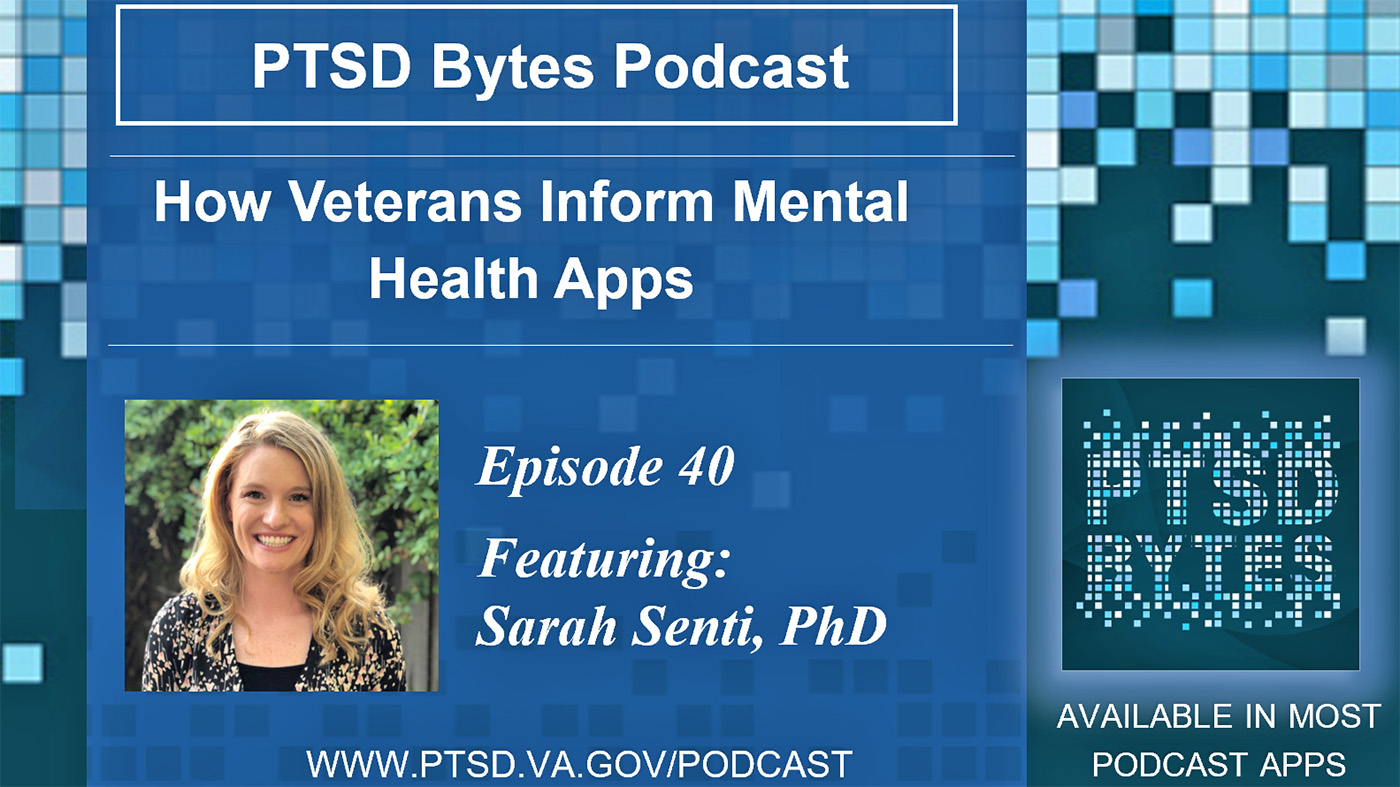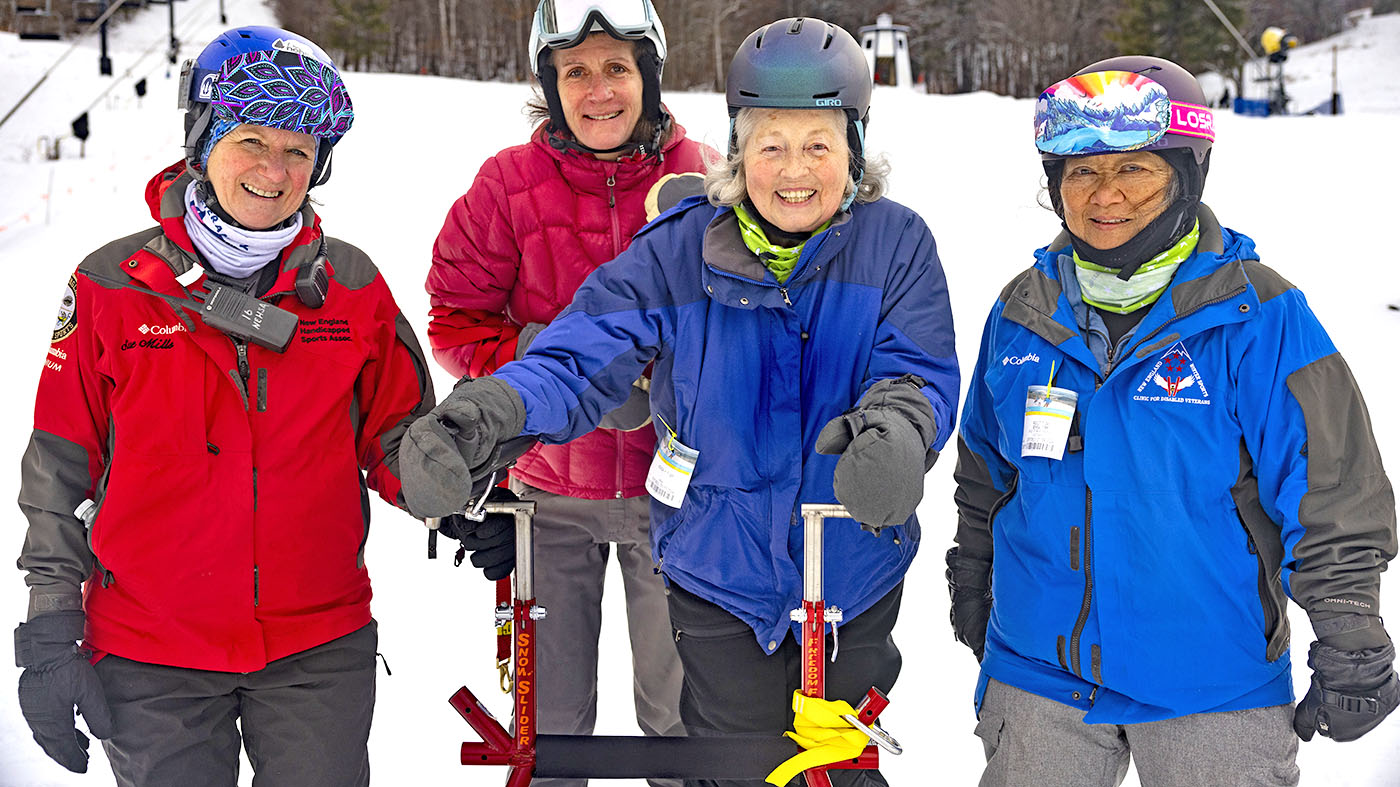In this episode of the PTSD Bytes podcast, host Dr. Colleen Becket-Davenport talks with with Dr. Sarah Senti, clinical psychologist and lead of user experience research at the National Center for PTSD’s Public Digital Health Innovation Program, about how Veterans help shape VA’s mental health mobile apps
VA mental health mobile apps
VA offers over 17 mobile apps designed to support Veterans who have been impacted by trauma or PTSD. These apps are freely available to anyone—not just Veterans—but they are uniquely tailored with Veterans in mind. For instance, apps like Insomnia Coach help improve sleep while Mindfulness Coach introduces mindfulness techniques to help manage anxiety.
Veteran-centric design process
What makes these apps special is the direct input from Veterans themselves. Through VA’s user experience research program, Veterans actively participate in shaping the apps’ designs and features. User experience refers to feelings users have when using an app. This can include anything from how easy the app is to use, how pleasing it is to look at, how relevant the information is and more. This feedback is essential for making the apps not only functional but also user-friendly and effective in addressing Veterans’ needs.
User feedback comes through various channels. Veterans can email suggestions directly, which has led to significant updates like adding a journal feature to PTSD Coach based on user requests. Structured interviews and surveys allow for deeper insights. During these sessions, Veterans interact with app prototypes providing feedback that directly influences design decisions.
“Veterans are the ultimate source of truth about whether or not our apps are helpful,” said Senti.
Feedback-driven improvements
Veteran feedback is crucial throughout an app’s lifecycle from initial development to ongoing updates. Every piece of feedback is considered to ensure continuous improvement and relevance. The goal is to make sure that the apps remain valuable tools for Veterans in managing their mental health.
Participating in user experience research
If you’re interested in testing prototypes and sharing your thoughts about VA mental health mobile apps, consider joining the Veteran participant panel by sending an email message. This panel allows Veterans to share their experiences and preferences, guiding future developments in VA’s mental health apps. Participation is voluntary and contributors are compensated for their time and insights with gift cards.
User experience research involves not just experienced app users but also those unfamiliar with the apps. This inclusivity ensures diverse perspectives, enriching the feedback process. Even small details like how things are worded can significantly impact user engagement and satisfaction.
Veteran voices are making a difference
The enthusiasm and altruism among Veterans who participate in these programs is noteworthy. Their willingness to help improve mental health resources for fellow Veterans is both inspiring and crucial to the success of VA’s digital health initiatives.
By listening to Veterans and incorporating their feedback, VA ensures its apps remain valuable tools in managing mental health. This collaborative approach underscores the commitment to providing innovative and compassionate care for those who have served.
Additional links:
- Learn more about VA mental health apps.
- Find mental health treatment at VA.
- More PTSD Bytes episodes.
If you are a Veteran who is experiencing a crisis or supporting a loved one who is, call 988 and press 1 for immediate assistance, or chat online.
Topics in this story
Link Disclaimer
This page includes links to other websites outside our control and jurisdiction. VA is not responsible for the privacy practices or the content of non-VA Web sites. We encourage you to review the privacy policy or terms and conditions of those sites to fully understand what information is collected and how it is used.
More Stories
Spinal cord stimulation implantation helps Veterans suffering from chronic pain improve their quality of life without narcotics.
After Addison’s Disease and lumbar spine surgery, nurse Veteran Gayle Smith re-learned how to ski. “You have more courage than you think.”
Follow these 10 winter safety tips to stay warm, safe and protected during the cold winter.







